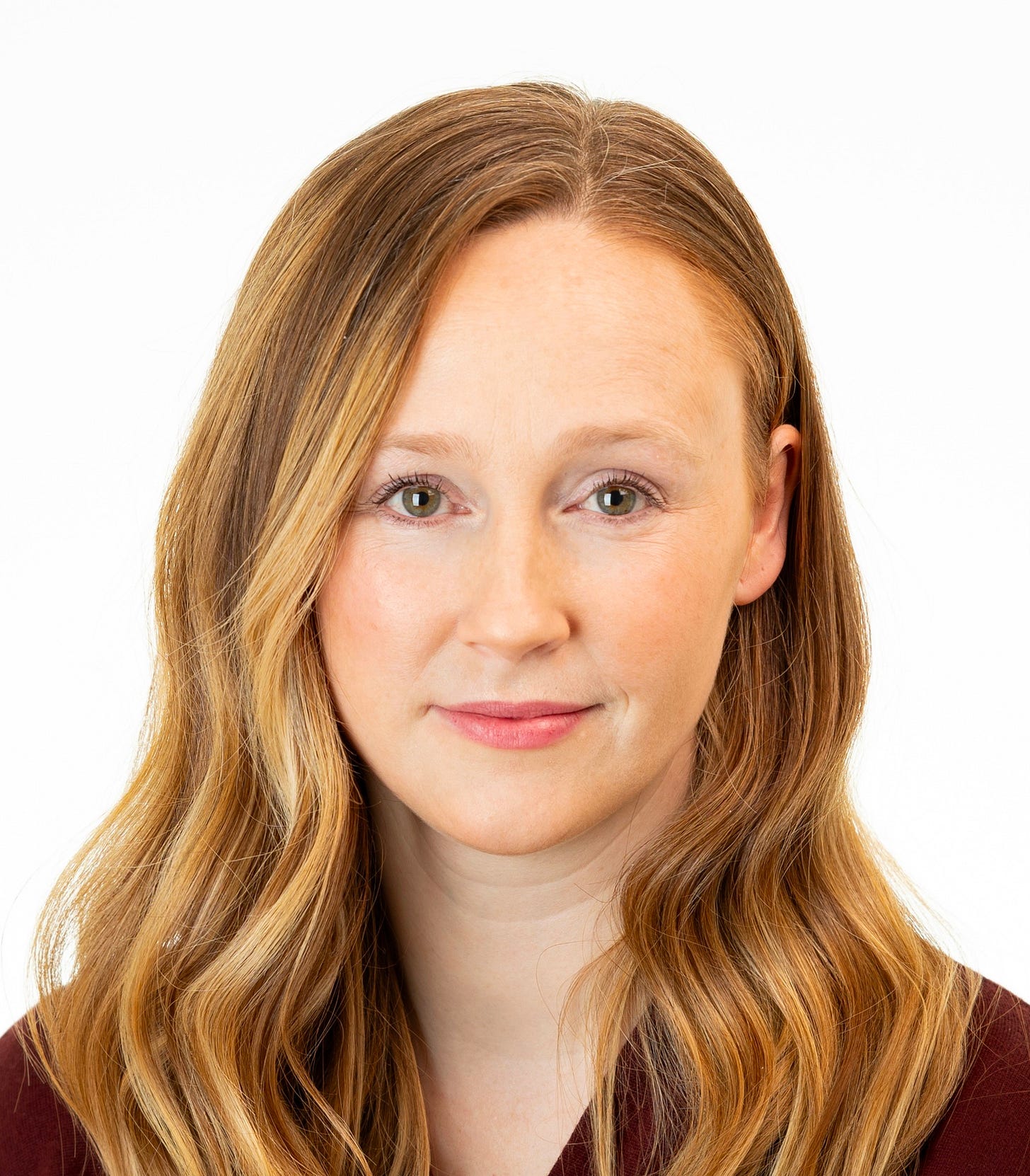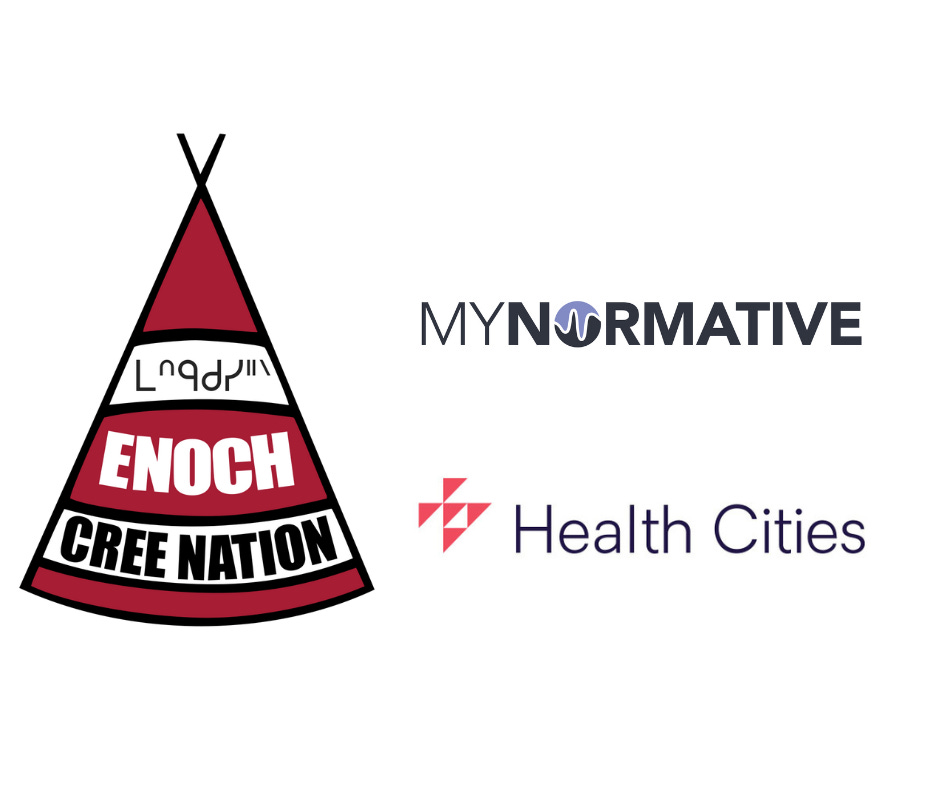New My Normative indigenous-led metabolic health project opens conversation on future of women’s health data
Highlights importance of culturally grounded data collection methods
My Normative, a Canadian women’s health research platform, has entered a new collaboration with Enoch Cree Nation Sovereign Health and Health Cities to develop culturally grounded methods for monitoring gestational diabetes in Indigenous communities.
For My Normative’s CEO and co-founder Danika Kelly, the most important part of the project isn’t the technology — it’s the approach. She describes it as “figuring out how to ask the right questions” before any clinical data is collected.
Kelly’s background in medical anthropology shapes much of her thinking. She is critical of how research has historically been conducted in Indigenous, marginalised and female populations — “extractive, exploitative, and rarely beneficial to the people who contributed the data”. During recent community visits, she heard concerns that stories shared during research were often mishandled or misrepresented.
“Pregnancy and postpartum stories are incredibly vulnerable,” she says. “If we’re asking communities to trust us, we have to build processes that respect how they understand time, health, risk and experience.”
Building methods before collecting data
The collaboration centres on metabolic health — specifically gestational diabetes, which disproportionately affects Indigenous women — but its early work is methodological rather than clinical.
A core element is incorporating OCAP principles (Ownership, Control, Access and Possession), which assert that Indigenous communities should retain governance of any data collected. These principles directly challenge the typical research model in which institutions, rather than participants, control data and its future use.
Kelly gives a simple example of why methods matter: even asking, “How far along are you?” may create confusion without cultural context.
“In some Indigenous communities, women’s health experiences can be understood through moon cycles rather than weeks or months,” she explains. “If you don’t understand that potential time differential, you misinterpret what someone is telling you — and you risk treating their story as unreliable.”
The team aims to create a shared “data dictionary” so that Indigenous and Western medical perspectives can be understood side by side, enabling more accurate and respectful monitoring strategies later in the project.
How this fits My Normative’s broader work
Although the Indigenous partnership is new, it fits into a much longer trajectory for My Normative. The company’s work centres on improving how sex- and gender-specific data is collected, interpreted and incorporated into research, clinical development and health decision-making.
Kelly argues that the core problem is not just the absence of women’s health data, but the way existing data is often homogenised.
“If you force uniformity across populations, you end up with health outcomes that don’t make sense for the people they’re supposed to serve,” she says.
“In women’s health, that’s been happening for decades.”
A recent example of My Normative’s work in this space is its multi-sector collaboration, The Persons Project. It aims to show how coordinated, cross-sector partnerships can establish stronger, more inclusive approaches to sex- and gender-aware health research. With partners including Clue, 4M and GSD Research, the initiative is designed to break down the silos between health tech, academia and clinical research — not only to generate better data, but to influence how women’s health research is conducted and funded in the future.
More broadly, My Normative works in two main directions. Prospectively, the team helps organisations design new studies that properly account for social context, cultural background, physiological differences, menstrual cycle dynamics and hormonal variation — all the elements typically overlooked in standard research.
Retrospectively, they help partners compare smaller, newly collected datasets against broader population-level norms to overcome common barriers such as limited sample sizes, budget constraints or datasets that were not originally built with women in mind.
Together, these approaches create what Kelly calls “interoperability”: a way for different kinds of evidence — scientific, cultural, clinical and lived — to be analysed side by side, without forcing one worldview to dominate or flatten the others.
The wider debate of who owns women’s health data
Kelly sees clear parallels between Indigenous data sovereignty and broader issues in digital women’s health — from consumer apps to clinical research platforms.
“There’s a huge amount of uncertainty about who controls the data, who stores it, who benefits from it, and what happens to it over time,” she says. Regulations like GDPR offer structure, “but there’s still a lot of grey space”, particularly in commercial health tech.
“You end up relying on a company to ‘do the right thing’ purely because they say they will. That’s not a sustainable model for trust.”
Shared rules, not silos
Kelly describes women’s health innovation as an ecosystem full of ambition but lacking agreed principles.
“There are thousands of lifetimes of work to be done. Everyone is moving fast, but everyone is moving differently.
“If we can create a shared understanding of how to work — not competitively, but constructively — everything else becomes easier.”
She doesn’t expect quick fixes. Instead, she hopes the next five years establish clearer foundations: agreed norms for data collection, standards for inclusion, and shared language for interpreting differences between populations.
“If we can all understand what we’re playing for, that alone would unlock investment, improve research and accelerate development,” she says.
The Indigenous partnership, she adds, is one example of what that future could look like: not a pilot project, but part of a broader shift toward health research that is inclusive, culturally grounded and methodologically precise from the outset.
By ‘setting up the playing field’, future research can move at the pace women deserve.
My Normative is one of nine startups selected for the 2025 Canadian Technology Accelerator (CTA) FemTech program organised by the Government of Canada. This program is free for the selected participants, and it provides access to mentors, a peer network, masterclasses delivered by subject matter experts on topics like the market landscape, IP considerations, fund raising, regulatory issues, public relations, and more, and a dedicated visit to the UK and France to connect founders with potential partners and customers. This article is part of a partnership with the High Commission Canada in the UK.





Love Danika! So good to see what impact she is having.